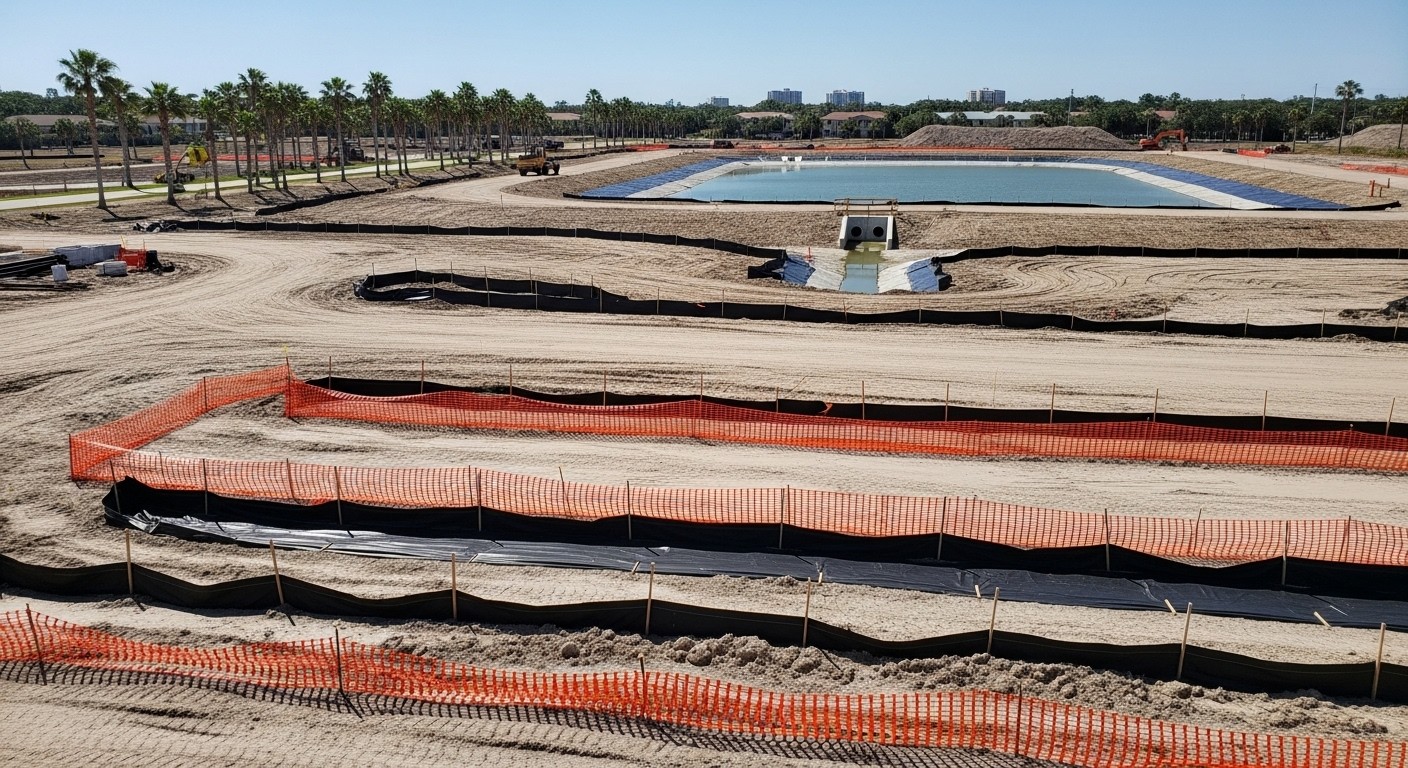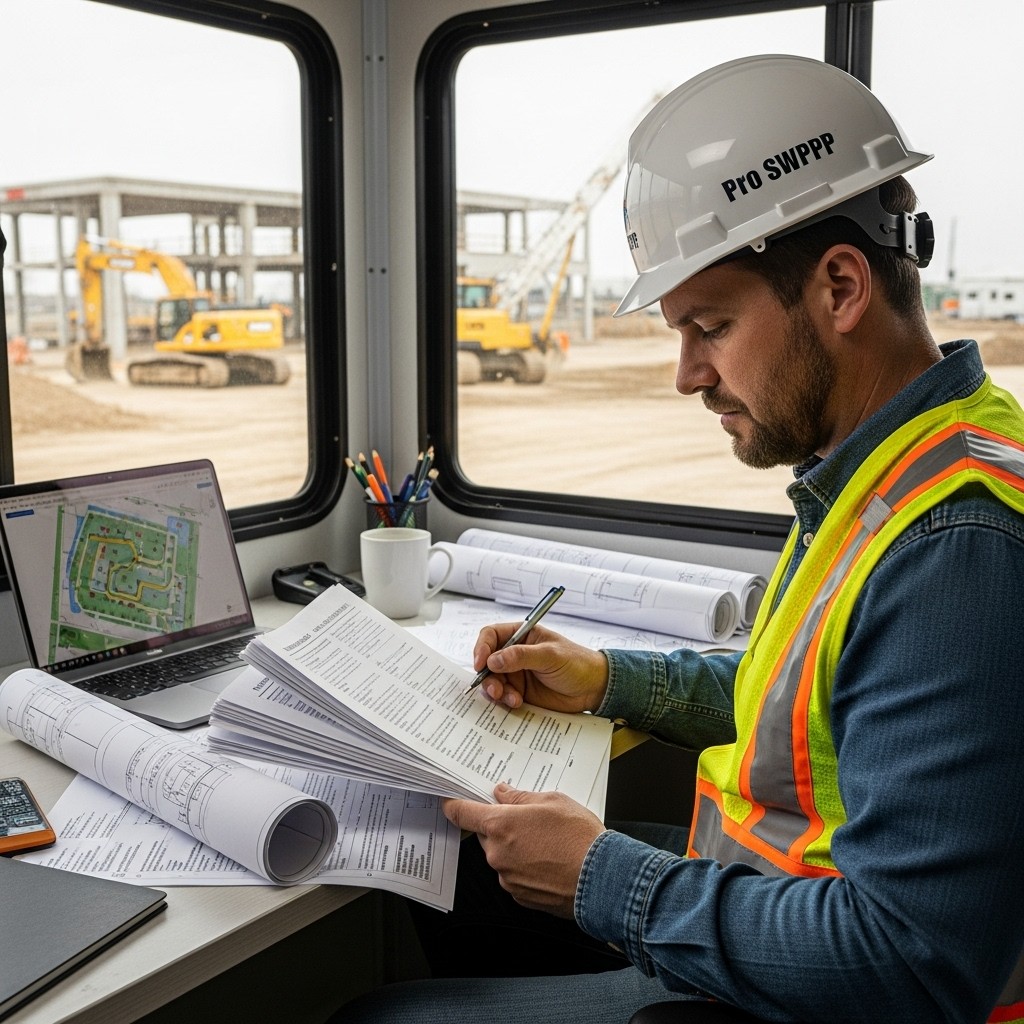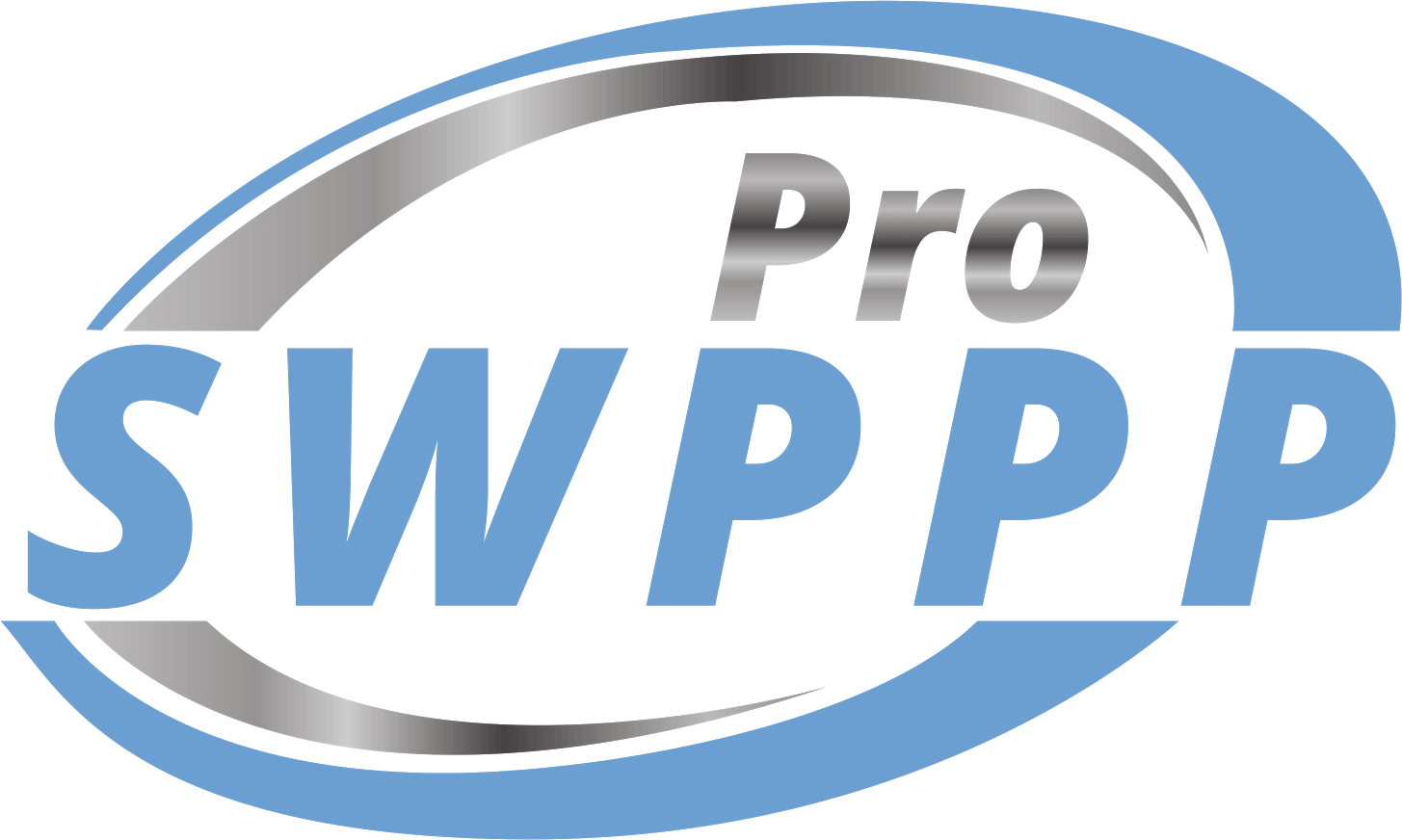Look, if you’re a contractor in Florida and you’re disturbing 1 acre or more of land, you need to know about your Florida NPDES Permit / SWPPP requirements. The Florida Department of Environmental Protection doesn’t mess around when it comes to stormwater pollution. Miss these requirements and you could face massive fines that’ll crush your profit margins faster than a Category 5 hurricane.
Here’s the deal: Florida follows the federal NPDES permit program under the Clean Water Act, which means every construction project that disturbs 1 acre or more needs a Stormwater Pollution Prevention Plan (SWPPP, SW3P) along with an NPDES Notice of Intent filed through the FDEP Business Portal.
This isn’t some bureaucratic suggestion – it’s the law, and ignoring it will cost you BIG time (thousands of dollars, losing you profit).
What Makes Florida SWPPP Requirements Different
Florida operates under the Construction Generic Permit (CGP), but with state-specific twists. The Florida DEP enforces these rules through Administrative Code Chapters 62-330 and 62-40. Think of it like this: you’ve got federal rules as your foundation, then Florida adds its own flavor on top.

The 1-acre threshold isn’t negotiable.
Whether you’re building a shopping center in Miami or a subdivision in Tampa, if your project disturbs 1 acre or more, or is considered part of a larger common plan of development, you need your SWPPP and NPDES Generic Permit Notice of Intent at least forty-eight hours before you break ground.
Core SWPPP Components Every Florida Contractor Needs
Your SWPPP isn’t just a document you file away once. It’s your roadmap for keeping the construction site clean and your business out of legal trouble.
Here’s what Florida requires:
- Certified stormwater personnel identification
- Detailed site maps showing all construction activities
- Best Management Practices (BMPs) for erosion control and sediment control
- Dewatering and waste management protocols (as-needed)
- Florida FSESCI Certified SWPPP Inspections every 7 days and after a 0.50-inch rain event
- Employee training programs to ensure all personnel are aware of SWPPP requirements and BMP functions
- Complete record keeping and reporting procedures with all records retained for three years
Each component serves a purpose. Your BMPs prevent soil from washing into waterways. Your inspection schedule keeps you compliant. Your training ensures everyone on site knows their role in pollution prevention.
The Notice of Intent (NOI) Process
Before construction starts, you need to file a Notice of Intent (NOI) with Florida DEP. This document tells the state you’re planning construction and you’ve got a SWPPP ready. Think of it as your permission slip to start work. Want to know more about this process? Contact us and we’ll explain it further.
Don’t want to worry about any of this? Order your SWPPP now to have Pro SWPPP handle all your NPDES / FDEP SWPPP requirements using our Turnkey process. We’re CPESC Certified and have been crafting 100% compliant stormwater pollution prevention plans for over 17 years.
Where Most Contractors Mess Up
I’ve seen contractors make the same mistakes over and over. They think they can wing it or handle SWPPP requirements as an afterthought. Here are the costly mistakes that’ll sink your project:
- Starting construction without an approved SWPPP
- Installing ineffective BMPs that don’t actually control erosion
- Skipping required inspections or faking documentation
- Failing to update the SWPPP when site conditions change
- Not training workers on stormwater pollution prevention

Each mistake opens you up to Environmental Litigation and Reform Act (ELRA) penalties. We’re talking about fines that can reach tens of thousands of dollars per violation. One contractor in Collier County learned this the hard way when they faced a $50,000 fine for inadequate sediment control. We don’t want this to happen to you too.
Smart Solutions That Actually Work
The contractors who succeed in Florida don’t try to handle SWPPP compliance alone. They bring in FSESCI-certified SWPPP inspectors from day one. These experts know exactly what Florida DEP inspectors look for during site visits.
Partnership with environmental consultants pays for itself. Companies like Pro SWPPP handle everything from initial SWPPP development to NOI filing to final Notice of Termination (NOT). You focus on construction while we handle compliance, and you don’t have to worry about anything.
Not sure what your project needs? Take our SWPPP Quiz or Schedule a Free SWPPP Consultation with our CPESC-Certified stormwater pollution prevention plan expert, Derek E. Chinners.
Florida SWPPPs vs Other States
Every state handles SWPPP requirements differently. Texas contractors deal with TCEQ regulations. And Georgia has its own state-specific requirements.
Florida’s uniqueness comes from its environmental sensitivity. With the Everglades, extensive coastline, and frequent hurricanes, the state takes water quality seriously. That means stricter enforcement and less tolerance for violations.
What’s Coming Next for Florida Construction Projects
Florida’s SWPPP requirements aren’t getting easier. The state is moving toward more rigorous inspection protocols and higher enforcement standards. Digital documentation tools are becoming standard, which actually makes compliance easier if you’re prepared. Pro SWPPP now has an E-Portal where you can do your SWPPP Inspections on any mobile device, and all documents are stored in the cloud for easy access.
Counties like Collier have been enforcing NPDES CGP requirements since 2003, showing this isn’t a temporary trend. It’s the new normal for construction in Florida.
Frequently Asked Questions
Do I need a SWPPP for projects under 1 acre in Florida?
Generally, no. But if your small project is considered ‘part of a larger common plan of development’ by the City or County, then you are required to have the full SWPPP and Notice of Intent submittal as on a large construction site project.
How long does SWPPP approval take in Florida?
Standard Notice of Intent process can take several days to even weeks if you have to obtain a new FDEP Business Portal Account and mail in your Signature Card in order to obtain a PIN to process your documents in their system. Or you could always utilize Pro SWPPP’s Florida Turnkey SWPPP Service and we can have your Notice of Intent ready and approved in less than 24 hours, and you never even have to log into the FDEP Business Portal. Ask about our Turnkey Service for Florida.
What happens if I start construction in Florida without a SWPPP?
You’re looking at immediate stop-work orders and fines starting at $10,000 per day. Florida DEP has zero tolerance for unpermitted discharges to state waters.
Can I write my own SWPPP?
Technically yes, but it’s not smart. SWPPP requirements are complex and mistakes are expensive. Most successful contractors use certified professionals to ensure compliance.
When can I file my Notice of Termination for Florida projects?
Only after you’ve achieved final stabilization of all disturbed areas and removed all temporary BMPs. Jumping the gun on your NOT can result in violations if stormwater issues arise later. Of note, your Notice of Termination filing is included in Pro SWPPP’s Turnkey Florida SWPPP Service.
Florida SWPPP compliance protects your business, your profits, and the environment. With the right team and proper planning, staying compliant becomes part of your standard operating procedure rather than a constant worry. Ready to get started? Contact the SWPPP experts or learn more about our proven track record.
Get your Florida SWPPP handled by America’s #1 SWPPP service and never worry about stormwater compliance again.
